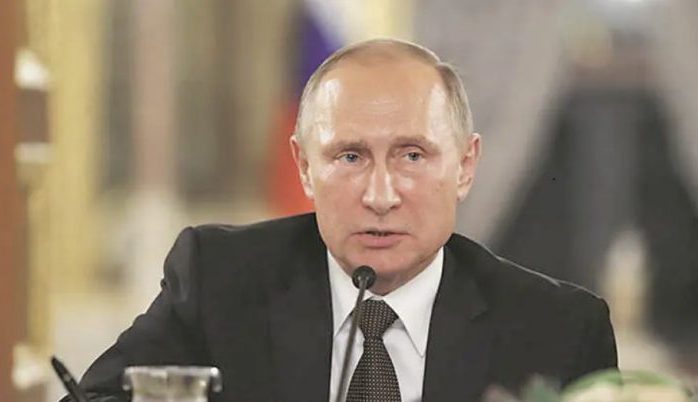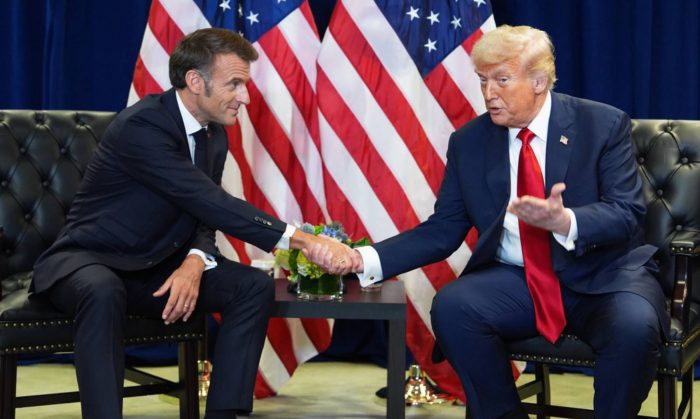Echoes of the Past: A Dangerous Resurgence of Anti-Jewish Sentiment in the West.
Imagine a scenario where Nazi ideology, far from being relegated to the dark chapters of history, had found new life—not in Germany of the 1930s, but on the streets of London, New York, and other Western cities. Where swastikas flew freely, slogans calling for Jewish death were masked as free speech, and social acceptance depended on denouncing Jewish people as malevolent forces in society. Such a vision might seem dystopian—until one replaces the Nazi banner with the Palestinian flag, and the swastika with the keffiyeh.
For many Jews in the diaspora, this is no thought experiment—it feels like lived reality. Over the last 21 months, they have watched as public rallies—purportedly in support of Palestinian statehood—have turned into open calls for the elimination of the State of Israel, and at times, for violence against Jews. The symbolism—flags, chants, graffiti—is not lost on them. What is intended by some as political advocacy is experienced by others as a revival of history’s most sinister hatred.
This surge is not just political. It has cultural, institutional, and even academic sanction. In the UK, for example, unions representing teachers and healthcare professionals have passed motions against Israel, and shops have faced pressure to declare their stance. Even the United Nations, once seen as a postwar bulwark against hatred, has in some instances mirrored the rhetoric and imagery once weaponized by the Nazi regime.
What links today’s anti-Israel fervor with the historical horrors of Nazism is more than metaphorical. Palestinian nationalism itself, some scholars argue, was deeply shaped by Nazi ideology. Haj Amin al-Husseini, the Grand Mufti of Jerusalem and a known collaborator with Hitler, incited anti-Jewish violence and pledged to annihilate Jews across the Middle East. His ideological legacy was embraced by modern Palestinian leaders, including Mahmoud Abbas, whose doctoral thesis notoriously questioned the Holocaust and who hailed al-Husseini as a role model.
Propaganda—long a powerful weapon—is also recycled. Palestinian Authority publications and broadcasts regularly depict Jews using images eerily reminiscent of Goebbels-era caricatures: blood-drinkers, parasites, or manipulators of global systems. This messaging has educated generations of Palestinian youth not toward coexistence, but toward rage and rejection.
Historian and filmmaker Pierre Rehov documents in Palestine: Invention of a Nation how, post-WWII, many former Nazi operatives found refuge and new roles in Arab regimes—especially in Syria and Egypt—where they trained militants and shaped anti-Zionist discourse using tried-and-tested Nazi propaganda models. Copies of Mein Kampf, Israeli soldiers report, are found repeatedly in homes in Gaza.
Yet even as this dangerous inheritance continues, Western discourse has turned on its head. It is now Israel, the region’s only democracy, that stands accused of genocide, apartheid, and ethnic cleansing. Even Holocaust motifs are grotesquely appropriated: Gaza is likened to a concentration camp; gas chambers are ominously suggested in UK political discourse.
At the same time, many of the young activists shouting slogans on Western streets appear unaware of the ideologies they echo. Their historical illiteracy enables a potent moral inversion—where Jews are cast as the new Nazis, and those who glorify terrorism are seen as resistance fighters.
This inversion not only trivializes the Holocaust; it also absolves Western societies of their own historical complicity in it. By shifting the image of victimhood onto the Palestinian Arabs, many in the West assuage their cultural guilt—suggesting that if Jews can now be perpetrators, then past sins need not weigh so heavily.
Recognition of a Palestinian state, once considered a diplomatic milestone to be carefully earned through peace, is now being offered unconditionally—regardless of Hamas’s actions or objectives. As recently as this week, French President Emmanuel Macron called on the UK to join in recognizing Palestine immediately, claiming it as the only path to peace. British Prime Minister Sir Keir Starmer applauded.
Yet such gestures, critics argue, empower Hamas—an organization committed not to peace, but to Israel’s destruction. Bypassing negotiations and rewarding violent rejectionism undermines the very principles of international law.
For many Jews, especially in the diaspora, the convergence of far-left ideology with radical Islamist rhetoric forms an unholy alliance that threatens not only their sense of safety but the moral clarity of Western civilization itself. The slogans, flags, and accusations may be new in style, but their roots lie in old, familiar hatred.
If Winston Churchill once stood against fascism with unwavering conviction, what would he make of a Europe that now lends credibility to its modern heirs?
The fight against antisemitism today demands not just remembrance of history, but recognition of its reemergence—however veiled—in contemporary movements. It requires leaders not to appease, but to uphold principle. And it calls on societies to distinguish between just causes and dangerous ideologies cloaked in moral language.
Because if we fail to learn the lessons of history, we may well find ourselves repeating its darkest chapters.
By Melanie Phillips | JNS Columnist





